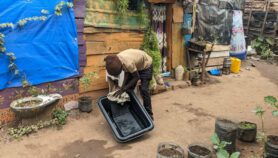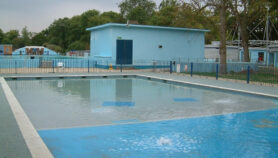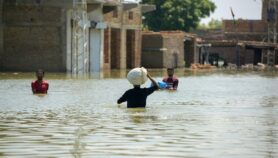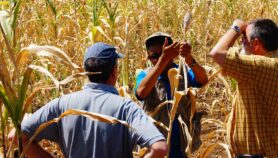By: Valeria Román
Send to a friend
The details you provide on this page will not be used to send unsolicited email, and will not be sold to a 3rd party. See privacy policy.
Five Latin American countries are joining forces to launch a new scientific initiative to protect the Plata Basin, an area that accounts for 17 per cent of the South American sub-continent, through the sustainable management of the watershed.
In a move supported by the American Association for the Advancement of Science (AAAS), the five countries — Argentina, Bolivia, Brazil, Paraguay and Uruguay — will collaborate on a number of joint research projects.
The initiative also intends to raise additional funds for research into critical issues in the region, and to find ways of providing better scientific information to policy-makers about issues concerning the watershed.
The Plata Basin includes almost all the southern part of Brazil, the southeast of Bolivia, a large part of Uruguay, the whole of Paraguay, and a large part of northern Argentina. (See map of the Plata Basin).
The initiative, which is planned to last between five and seven years, is not the only big project in the zone, and its coordinators plan to work jointly with other integrative projects.
One is the Platin/Vamos programme that was created to analyse the links between climate variability, land-use change and hydrology. Another is RIGA (Network for Environmental Research and Management in the Plata Basin), which aims to study water resources.
“The area is critically important for the economies of the five countries,” says Robin Thomas Clarke, of the Instituto de Pesquisas Hidráulicas, in Brazil. It contains about 50 per cent of their combined population, and produces about 70 per cent of their gross domestic product (GDP).
According to Clarke, the main environmental issues affecting the basin are fluctuations in climate, severe flooding, deforestation and intensive agriculture. Other serious problems include environmental degradation caused by intensive urbanisation, and the construction of hydroelectric installations.
Alberto Calcagno, the coordinator of RIGA, warns that the water in the Plata Basin is also polluted. “One of the big challenges is the integral and sustainable management of the basin,” he says. “Each of the countries that make up the basin has carried out actions with one another, but none of them has any idea about the basin as a whole”.
Claudia Natenzon, a scientist at the Geography Institute of the University of Buenos Aires, points to another problem. “Our countries do not have a constant institutional stability; policy-markers and technical staff change frequently. So it is very difficult to create new agreements between the countries that form the basin,” she says.
Marina Sansostri Ratchford, a senior programme associate at the AAAS, says that the new initiative will be carried out through a multidisciplinary perspective with a range of stakeholders.
“It will deploy tools and computer instruments to quantify, collect and model variables related to the basin. These will include databases, geographical information systems, image remote sensing, and mathematical and space models.”
Sansostri Ratchford adds that the initiative will be carried out with projects that link together available information and capacity. Participants will have a special website and a digital map with information about the many organisations that have been working on the basin.
“In the long-term, we will have a model of changes in the use of the soil,” she says. “We will understand the impact of human activities on the hydrology, the biodiversity and the development of the basin.”
Given the many problems with the basin, one of the explicit goals of the new initiative is to make the scientific research that is produced by its projects available to policy-makers.
“It is an interesting and ambitious project,” says María Elena Zaccagnini, an expert in management of wildlife in agro-ecosystems, at the Argentine National Institute of Agricultural Technology. “It will be a good opportunity to obtain finance for our research and also cooperation from international organisms with high scientific rigour.”
She adds that it will also be possible to share knowledge with the other countries that make up the basin about the impact of pesticides and other agricultural practices on biodiversity.
However, opinions about the initiative are not unanimous. Jorge Daneri, of the Ecological Forum of Paraná, says that a broader initiative is needed managed by the states that make up the basin. “It should not consider the basin only from a scientific perspective.”
© SciDev.Net 2002













